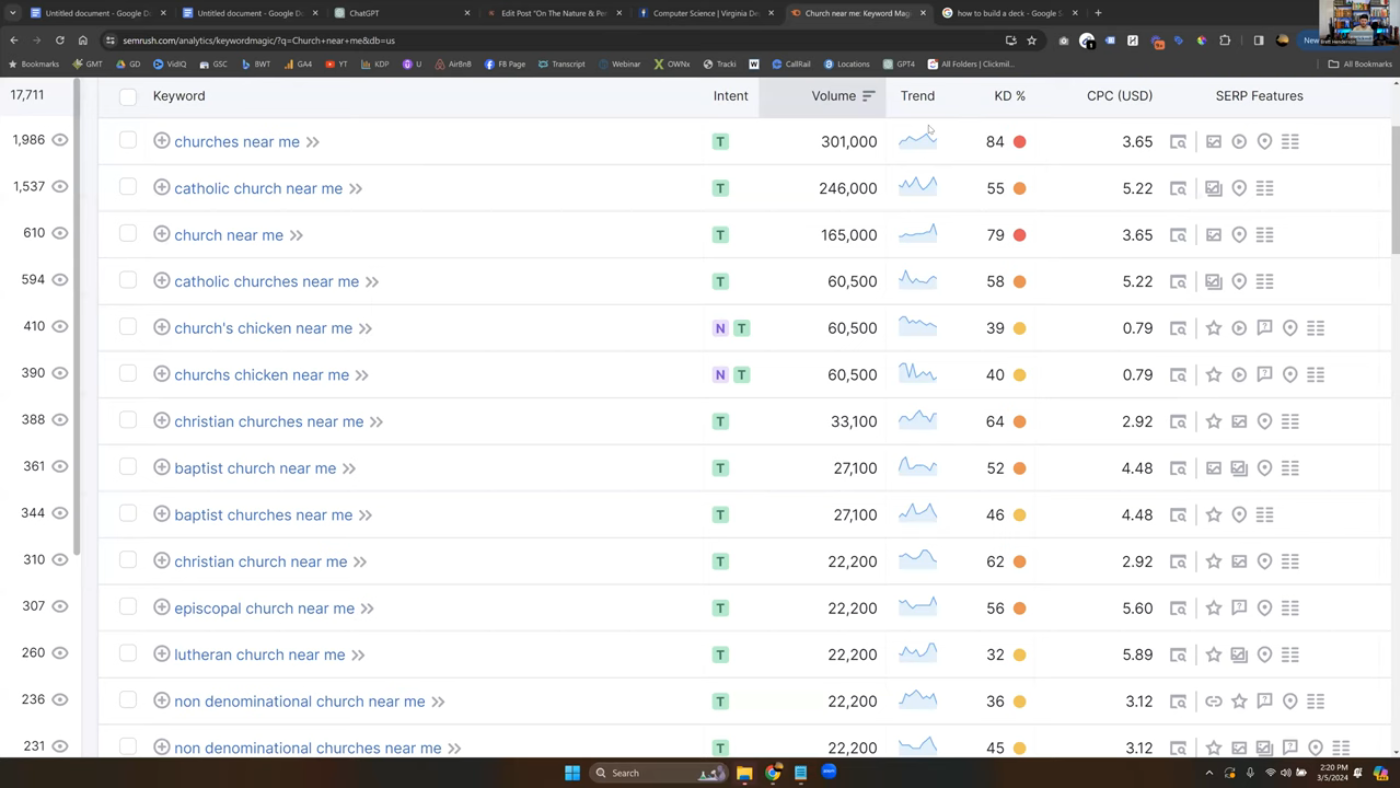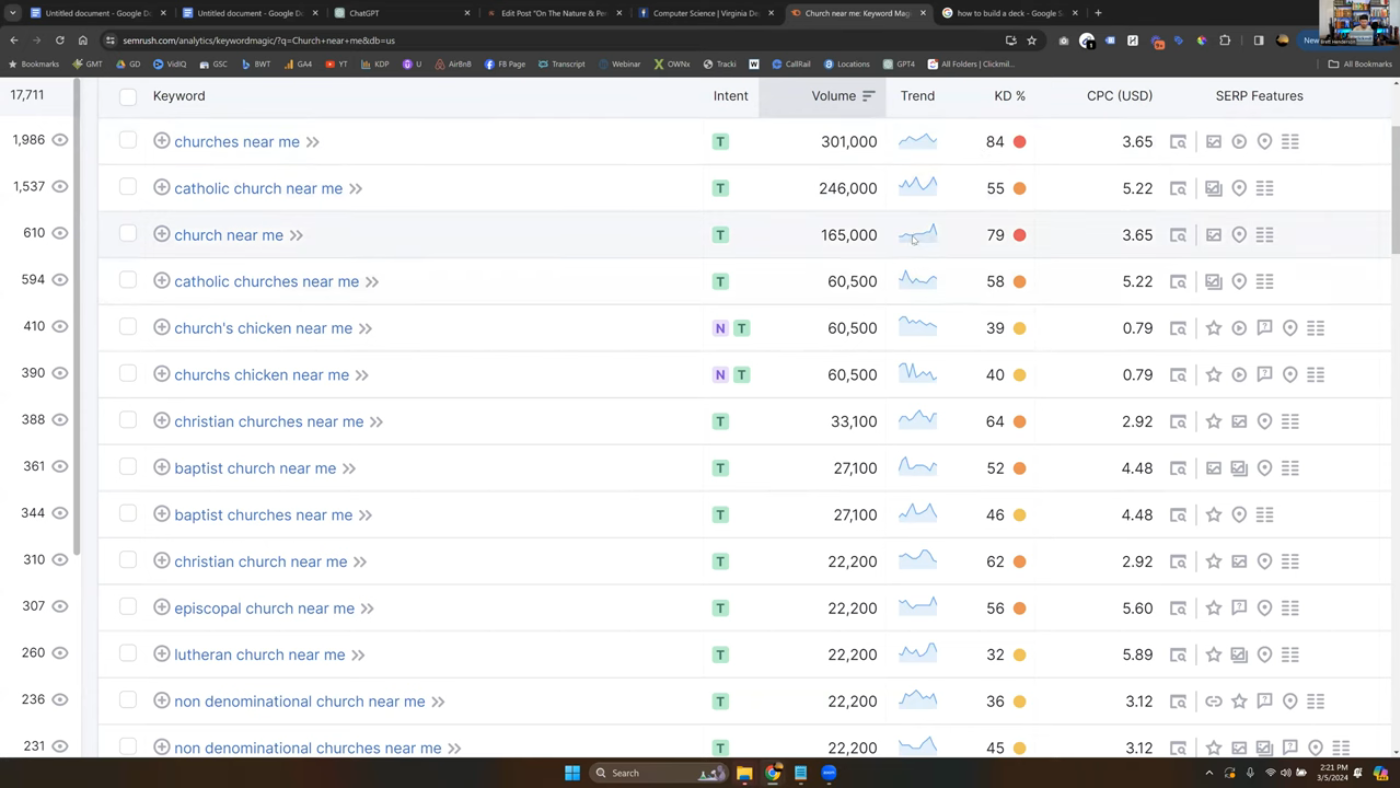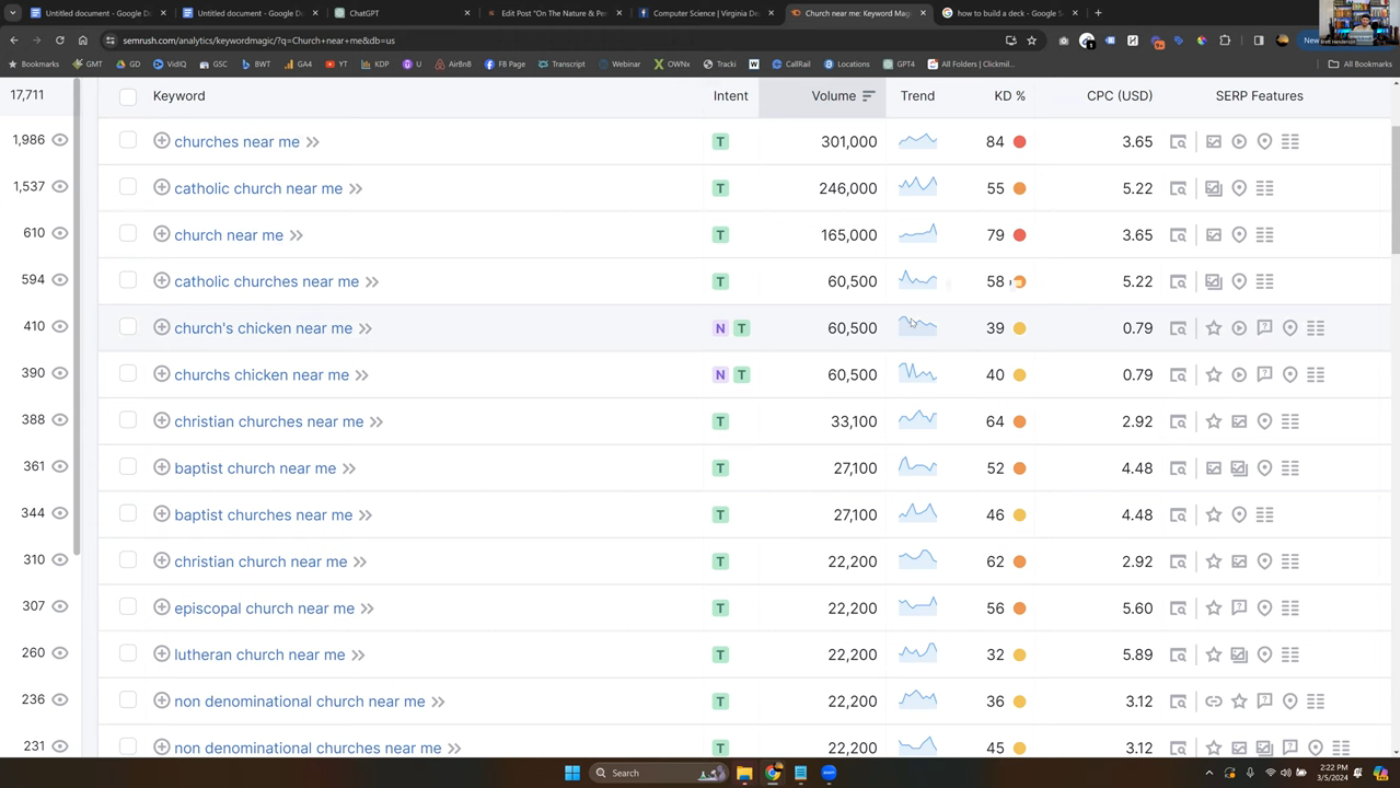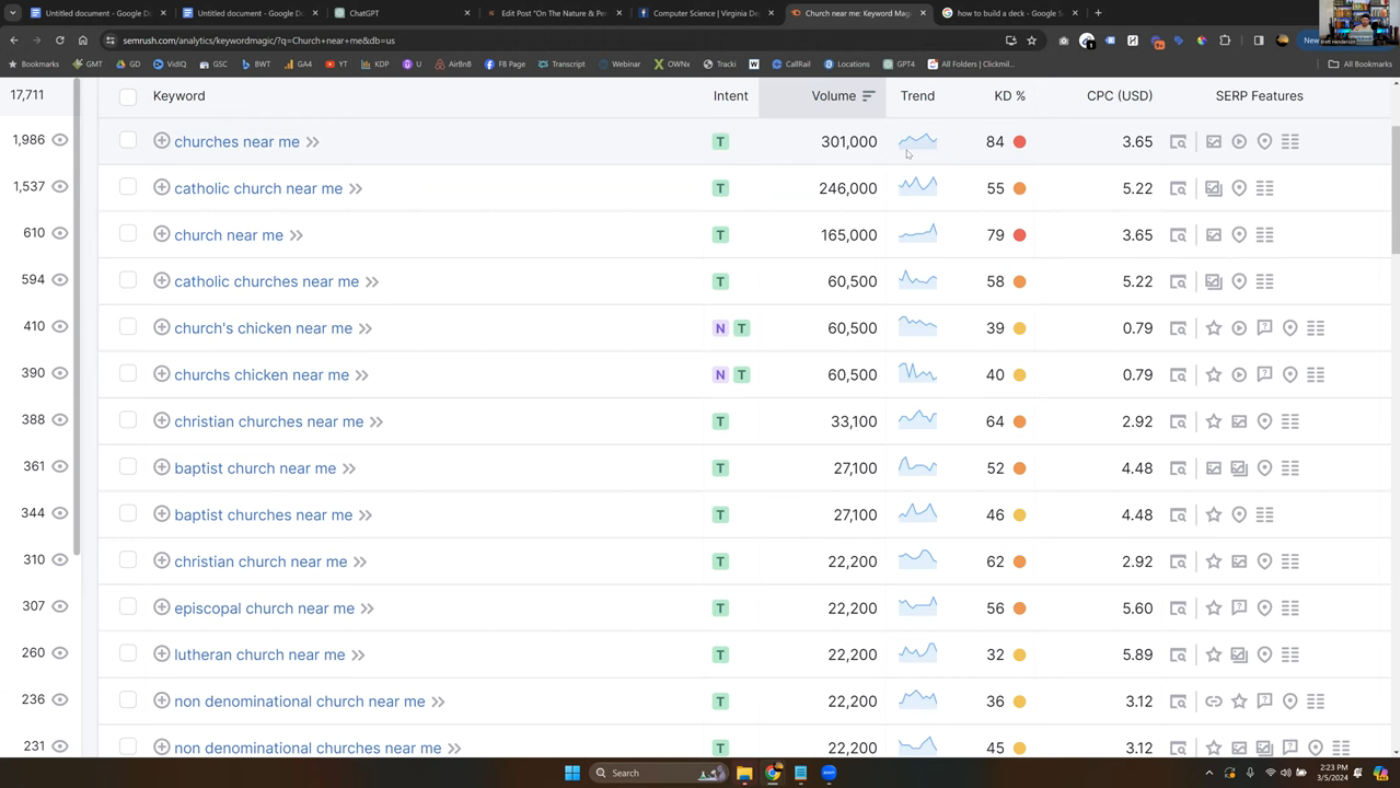Understanding Keyword Trends in Digital Marketing
Digital marketing is a rapidly evolving field, and understanding keyword trends is crucial for businesses and ministries to stay ahead of the curve. In this article, we will delve into the concept of keyword trends, their significance, and how to leverage them for effective content planning and SEO optimization.
Introduction to Keyword Trends
Keyword trends refer to the fluctuations in search volume for a specific keyword over a period of time, typically 12 months. This trend data helps marketers identify patterns and anticipate when interest in certain topics increases or decreases. For instance, the keyword "church near me" may experience a spike in search volume during December due to Christmas, indicating that certain times of the year are crucial for targeting specific keywords.
 Introduction to Keyword Trends
Introduction to Keyword Trends
Analyzing Keyword Trends
To analyze keyword trends, marketers use keyword tools that provide a 12-month plot of the search volume for a specific keyword. This plot shows the trend of the keyword over time, helping marketers identify patterns and anticipate future fluctuations. For example, the keyword "church near me" may have a big spike in December, which is likely due to Christmas.
Strategic Keyword Selection
When selecting keywords, it's essential to focus on consistent, well-performing keywords over a long period. While it's tempting to jump on trending keywords, it's crucial to assess whether the effort aligns with long-term goals. Quick wins are satisfying, but sustainable growth comes from consistent performance. Marketers should prioritize keywords that have shown consistent search volume over time, as this provides a more reliable foundation for SEO efforts and content planning.
Avoiding Dated Keywords
Keywords with a timestamp, such as "best XYZ of 2023," tend to lose relevance quickly. Focusing on timeless keywords ensures that content remains valuable over the years. Marketers should avoid getting on keywords that have a time stamp on them because they will eventually go away, and the work put into them will be wasted.
Planning for Seasonal Content
Marketers should identify keywords with seasonal spikes and plan their content calendar accordingly. This ensures that content is timely and more likely to capture interest when it's at its peak. For example, Christmas comes around every year, and marketers can set up and schedule campaigns in advance to capitalize on this opportunity.
Passive Marketing
Marketers should prefer the passive version of marketing, where they set up their campaigns for success, and they just run without requiring constant monitoring. This approach allows marketers to build other things without focusing on everything that's running.
Conclusion
In conclusion, understanding keyword trends is essential for effective content planning and SEO optimization. By analyzing keyword trends, selecting strategic keywords, avoiding dated keywords, planning for seasonal content, and preferring passive marketing, marketers can create a sustainable digital marketing strategy that drives results. In the next video, we will dive into keyword difficulty and explore how to leverage it for better SEO optimization.





